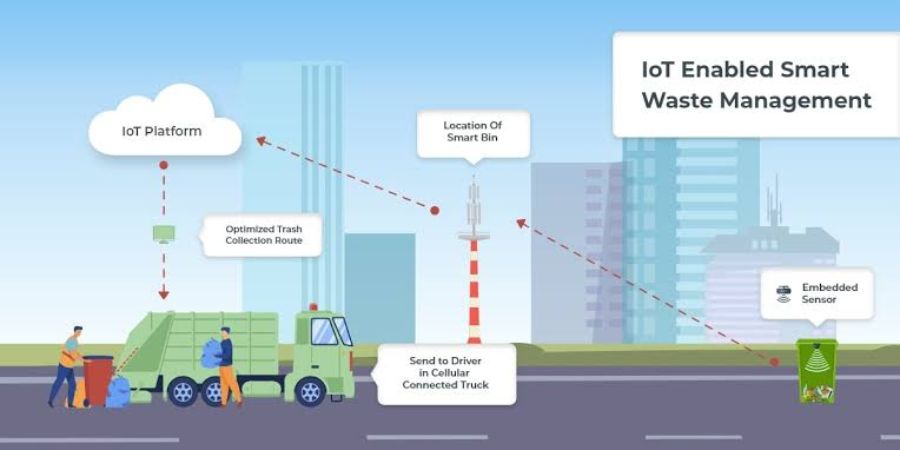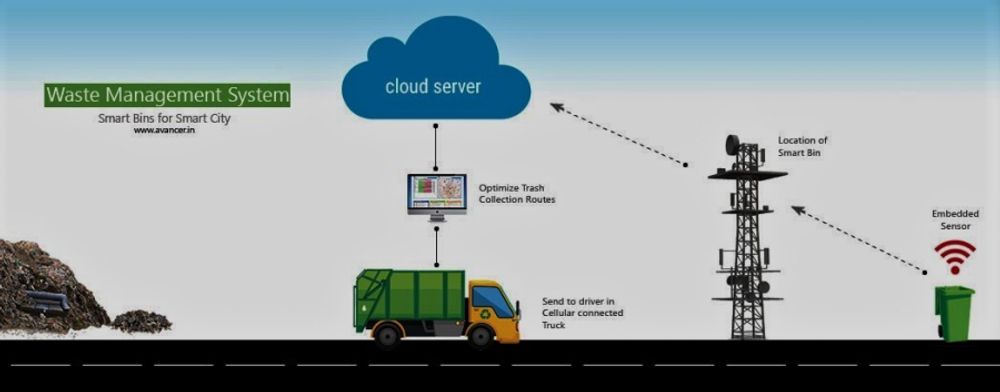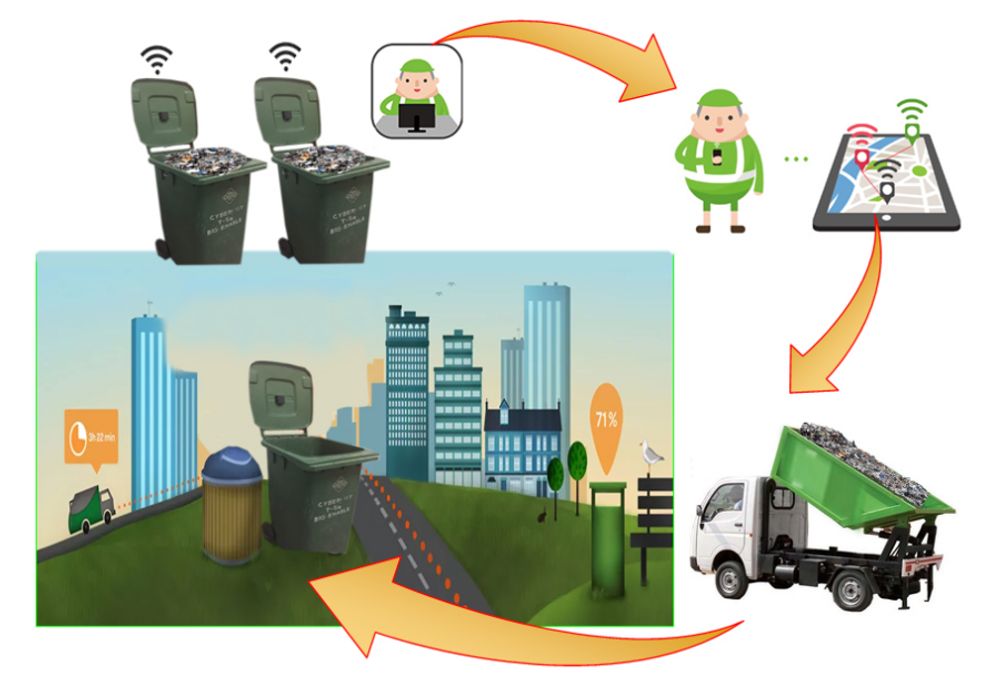

Waste management is one of the main problems globally. The greatest challenge citizens face is waste dumping. IoT is one of the smart technology that municipalities can operate to better handling of waste. The main aim of this application is to increase the efficiency of the collection of waste and recycling.
Smart waste management has become a fundamental part of the smart city ecosystems along with IoT-enabled smart waste sensors allowing cities to optimize waste collection, lessen the number of overfilling bins, and manage resources.
The smart bins which we called digital bins are fitted with an embedded sensor (which is also called an active sensor) such as an ultrasonic sensor and weight sensor to measure the level of waste, and some more sensors might also be fitted. The containers/dumpster send the information to a receiver end which is a data management system of the percentage of waste inside and the location of the last collection. Only a few bins are marked for garbage collection.

The data is later sent from the cloud via routers which show the optimized data of trash collection and sent to the driver of the garbage truck which is connected to the cellular network. The cloud platform plays the role of support sensing as a service. The trucks only fill fuel or overdue waste containers.

The use of sensors, connectivity, monitoring, and tracking of the location of the collection and the current status is the main role of IoT in this application. Some of the main used processes in the smart waste management system are:
Route Optimization: It reduces fuel consumption while emptying the dumpster(it is like a big-sized dustbin) all over the city. The truck driver follows a short or specific route for collecting the garbage, which saves their and citizen's time.
Smart Recycling: Identification and sorting of waste is done like electronic(e-waste), glass, paper, metals, chemicals like lithium in batteries, etc. The smart bin sensor notifies sanitation workers of information regarding the type of waste. The usefulness of IoT in smart waste management is:
Waste management is still carried out with conventional tactics in maximum places. There is a slow increase in upgrading to this smart city application. This technology helps where humans struggle can't and can tend to be eco-friendly for the environment and helps citizens to bring it to the front.
This facility led to cleanliness in the environment saves time, avoids the increase in health issues, and reduces the number of insects, rodents, and other pests in the area. There is maximum cost revenue generation for providing such a facility for the area. Hope you like the topic.
Thank you for reading the blog. Kindly like, read, and comment on my blog.
Keep supporting. Let me know how did you find my blog in the comment section.






